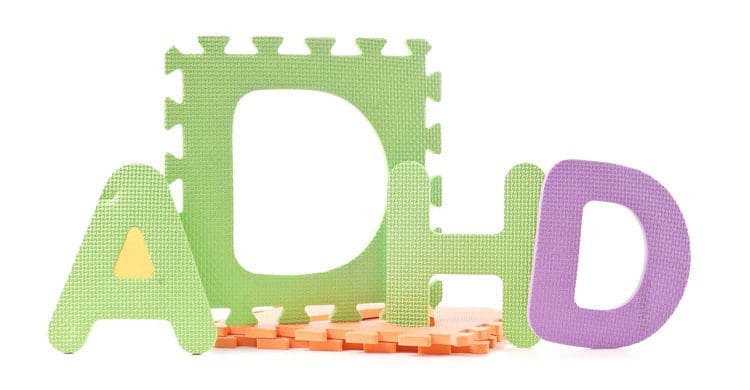Mastering Financial Organization: Tips for Working with ADHD Clients
This page may contain links to Amazon.com or other sites from which I may receive commission on purchases you make after clicking on such links. Read my full Disclosure Policy

I’m pleased to introduce my latest guest blogger, Susanna Miles, for many reasons. Not only is she a Productivity & Organizing Blog Carnival participant, the sponsor of the Neurodiversity edition and next month’s Money Management edition, but she is also my friend and accountability partner. I benefit from her expertise all the time and am happy to give you the same opportunity.

You know, every year, right around April, I think, “Man, if only I’d been a bit more organized throughout the year, tax season wouldn’t be such a pain.” I mean, have you ever felt like you’re playing hide-and-seek with last year’s tax details? Or those receipts you swear you saved? I know I’m not alone in this, ADHD or not. But for those of us with ADHD, there are some unique challenges in the mix.
Although I’ve engaged with numerous non-ADHD individuals who face similar challenges, it’s vital to recognize the unique hurdles people with ADHD encounter. By understanding these nuances, you can assist ADHD clients more effectively without feeling overwhelmed or frustrated. What’s more, the strategies you’ll learn can be valuable for non-ADHD individuals too, making it a win-win-win scenario.
Understanding the ADHD Perspective
Before diving into strategies, let’s explore why those with ADHD might face these issues. One of the key characteristics of ADHD is challenges with Executive Function. For those unfamiliar, Executive Functions are cognitive processes essential for self-regulation and goal-directed behavior. Both relevant and essential to our financial context, these include attention, working memory, organization, planning, and emotional regulation.
Individuals with ADHD can find these activities especially challenging. What’s worse is that these struggles can escalate, especially when combined, leading to extreme stress.
Plus, procrastination, intensified by strong emotions due to emotional dysregulation issues can result in a vicious cycle of avoidance, panic, and eventual surrender. This cycle isn’t limited to finances; it permeates many facets of life for those with ADHD.
How Organizers Can Help
First things first – Organizers aren’t therapists. But you guys have a magic touch when it comes to creating order from chaos. So, what can you do to help us ADHD folks with our financial chaos?
To make it easier, let’s look at some ideas based on the areas that we struggle with the most. I’ve organized them into 4 main categories.
1. Memory: Tools & Techniques to Reinforce Recall
- Visual Aids: Engage with tools like charts, calendars, and task boards that represent upcoming financial tasks, offering a quick visual snapshot.
- Reminder Systems: Implement physical post-it notes or digital reminders for crucial financial tasks, deadlines, and meetings.
- Financial Journals: Encourage jotting down daily expenses, financial goals, and thoughts, as the act of writing reinforces memory.
- Color-Coded Systems: By color-coordinating financial documents, one can quickly recall the type and category of each document.
2. Organization & Planning: Structuring Finances for Simplicity
- Establish a Dedicated Finance Space: Create a conducive environment for focused financial activities.
- Binders and Tab Dividers: Streamline document filing and retrieval with organized binders and clear labels.
- Envelope System: Physically categorize and allocate cash for different expenses, ensuring a planned approach to spending.
- Embrace Digital Organization: Help structure online financial documents for easy retrieval and management.
- Financial Software Training: Introduce software tools that assist in the structured planning of expenses, savings, and investments.
3. Emotional Regulation: Addressing Stress & Overwhelm
- Tax Season Preparation: Host a prep session before tax season with the body doubling technique to offer support and mitigate stress.
- Practice Body Doubling: Engage in collaborative organization sessions to address challenges of stress and procrastination.
- Regularly Scheduled Check-ins: Offer periodic meetups to review and reassure, maintaining a positive and encouraging atmosphere.
- Automate Whenever Possible: Set up automated transactions to minimize the anxiety around missed payments or deadlines.
4. Attention & Focus: Enhancing Engagement in Financial Activities
- Physical Wallet Organization: By organizing day-to-day transaction tools, it’s easier to remain focused on spending habits.
- Visual Aids: Tools like charts or calendars can provide immediate reminders and reduce distractions.
- Envelope System: By allocating cash for specific categories, it encourages a focused approach to spending within set limits.
- Financial Software Training: Engaging with digital tools can provide a focused framework for managing finances, making it easier to stay on track.
Remember, everyone’s ADHD journey is different though. These tips might be a hit for some and miss for others. But hey, it’s a start, and that’s what counts. It’s important to note that ADHD affects everyone differently. While these strategies serve as a foundation, they may need to be adapted based on individual needs.
To Wrap Up
By understanding the unique challenges faced by individuals with ADHD and adopting tailored strategies, professional organizers can make a significant impact in their clients’ financial lives. Whether you’re working with someone with ADHD or not, these strategies can only enhance your toolkit.




Wow, great information. ADHD can impact so many aspects of our lives, including the management of our money.
In some ways, I wish we could go back to all cash transactions. The influx of automatic payment, debit cards, online payments, online banking, and online/at the checkout financing muddy the waters of trying to keep things simple.
I do think body doubling is so helpful, whether you have ADHD or not. There is something powerful about having someone else near you who is focused. It really helps!
So true. it really was easier to manage pre debit-everything!!! Also, thank you so much! I’m glad you found it informative.
I find it much easier to keep track of my spending when I use my debit or credit card, though it is easier to overspend when you don’t have to limit yourself to what’s in your wallet at the time.
it definitely helps, especially when you use something like wave accounting.
What a great reminder of all the ways we professional organizers do (and can) support our clients on their journey to financial strength. While I believe all of these methods have the potential to help clients all along the spectrum of needs, I can definitely see how these efforts would be especially useful for clients with ADHD. Of all of these, I’ve always found body doubling to be powerfully effective when clients have been avoiding their financial tasks; body doubling helps them overcome the fear, spark some activation energy, and see how their systems can be developed and tweaked.
And I agree with Seana’s comments above; the 21st century, with all of it’s multiple methods of payments and disparate financial pathways, makes it hard for anyone to keep it all straight! I’m not sure I want to go back to the days of cash, printed bills and bank statements, fixed due dates, and paying by check at least made it easier to have one system and stick to it. Sigh. Darned modernity!
Thanks for your insight, Julie! I haven’t read much about body doubling, so this is very interesting.
I love the term “activation energy”!
And yes, all the different ways of tracking is definitely confusing.
And you’re right that everything mentioned in the post can be helpful to anyone. The only difference, really, is that ADHD people need more solutions, more often, and for a lot of different things simultaneously.
I love your sensitive description of how ADHD can make organizing challenging. Understanding specific strategies that take those challenges into consideration is helpful.
One of the things I often see with my ADHD clients is the need for novelty and the challenge with consistency. Having an accountability partner or building ongoing support works well.
There are so many tools (paper and digital) available to help organize and track finances. Finding which ones are best suited can be overwhelming, so enlisting help to narrow down the options is also beneficial.
I can totally relate to “the need for novelty,” though I don’t have ADHD to my knowledge. I eagerly embrace new tools, but am constantly distracted by something that might be even better. I’ve had to learn to ignore such things until my current tool no longer serves me well.
It’s so true about novelty and consistency! Those are my biggest challenges too!
It’s important to keep things consistent, especially when it comes to how you track money. But… it gets boring and without the fun challenge of figuring it out the motivation to do the work is low. I think that’s partly why body doubling helps… it makes it more fun and novel.
These are wonderful ideas for anyone, not just ADHD people. =) I work with several small business owners who are establishing financial systems, like a habit of keeping money for their rainy-day funds. Some things that work well for my ADHD clients are setting up automated payments if they have enough funds in their account to do so, digitizing their receipts into a tax folder on their computer, and keeping tax paperwork in physical form in specific folders near their desk so they see it often as a reminder. I totally agree that each person is unique and so their system needs to be unique to them. Thanks for sharing your thoughts.
Thanks for sharing your top strategies, Sabrina!
So true about anyone being able to benefit from these tips. There really are very few things that are on my suitable to ADHD people.
I mentioned above that the only difference, really, is that ADHD people need more solutions, more often, and for a lot of different things simultaneously and more
consistently (at least we’re consistent in one way ?). And… it’s more likely nothing will work for us sometimes.
I think that if someone has a mental block or trauma related to money their behavior around managing it starts to become similar to that of an ADHD person. The same can be said for people with anxiety or depression because there is such a big overlap of symptoms.
It’s definitely unique to everyone though, ADHD or not.
Thanks for sharing your tips btw. very handy! I think I’ll get a pretty container of some sort…because of course, it has to pretty. ?
Just recently I made a list of when bill payments are due on a piece of paper. I was finding between receiving paper copies of some bills and electronic copies of other bills occasionally a bill would not be paid. I have chosen not to do automatic payments. This list is especially helpful when I am going on vacation to make sure that bills that are due when I am away are paid in advance.
In preparing taxes, I found talking with my accountant and finding out exactly what he needs has cut down on how much I need to record throughout the year. Live has become much simpler and less overwhelming.
I think that’s a really good idea to keep a list. Whether you receive bills by mail or electronically, there are times when it doesn’t arrive, and if you don’t keep track of what’s do when, you could easily miss a payment (speaking from experience).